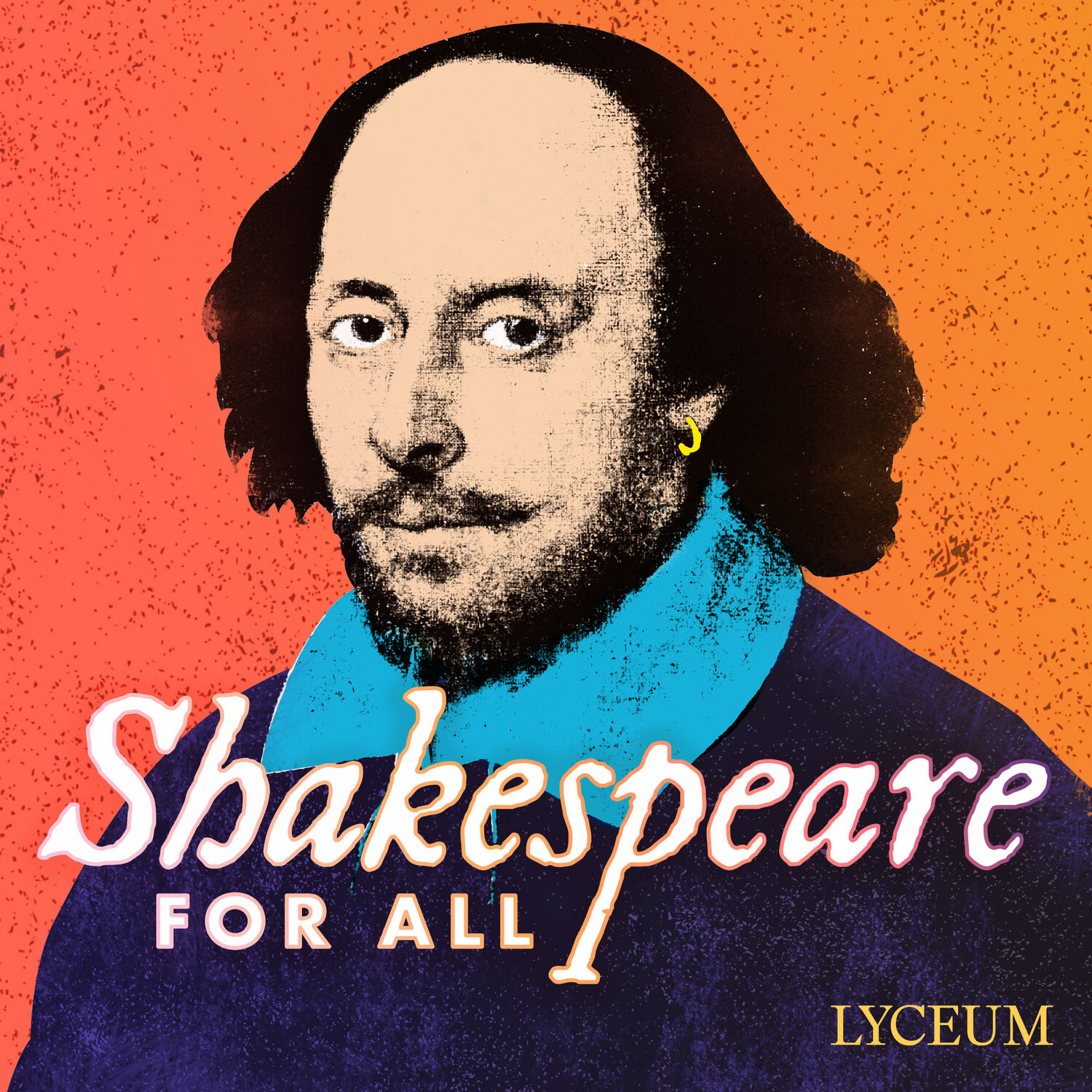Twelfth Night
“PRESENT LAUGHTER”
What You'll Learn
The story of Twelfth Night and key historical and cultural context
How the play blends comic and tragic elements and what these reveal about Shakespeare’s understanding of genre
The ways that Shakespeare opens up questions about gender and identity and keeps these open even at the play’s conclusion
Course Outline
Episode 1 - Twelfth Night: the Story
Episode 2 - Twelfth Night: the Context and the Questions
Episode 3 - Twelfth Night: the Language
Works Consulted for this Course
Belsey, Catherine. “Twelfth Night: A Modern Perspective.” Folger Shakespeare Library. <https://shakespeare.folger.edu/shakespeares-works/twelfth-night/twelfth-night-a-modern-perspective/>
Garber, Marjorie B. Shakespeare After All. New York: Pantheon Books, 2004.
Greenblatt, Stephen. “Introduction,” Twelfth Night, in Shakespeare, William. The Norton Shakespeare. Edited by Stephen Greenblatt, Walter Cohen, Suzanne Gossett, Jean E. Howard, Katharine Eisaman Maus and Gordon McMullan. 3rd ed. New York: W. W. Norton & Company, 2016.
Smith, Emma. This Is Shakespeare. New York: Pantheon Books, 2020.
Shakespeare, William. Twelfth Night. Edited by Jonathan Bate and Eric Rasmussen. The RSC Shakespeare. New York: Random House Publishing Group, 2010.
Twelfth Night, named for the celebration that is both the culmination and the close of the Christmas festivities, is a bittersweet romantic comedy at once melancholy and merry. Through its central plot, in which the female Viola takes on the guise of the male Cesario and becomes beloved of both men and women, this play is also one of Shakespeare’s most modern approaches to identity and sexuality. In this course, you’ll learn the story and context of Twelfth Night, explore the questions it raises around genre and gender, and hear the play’s key speeches performed and analyzed by world-class Shakespearean actors and literary scholars.
In Part 1, you’ll be guided through a detailed account of the story with commentary by Emma Smith, Professor of Shakespeare Studies at the University of Oxford. Professor Smith offers key historical context for understanding the wide variety of relationships depicted in the play. This summary is told using the language of the play itself, placing key quotations in context to help you understand where these lines come from and what they mean.
Part 2 looks at the many instances of inversion and transgression, looking at how characters cross boundaries of gender, status, and social role, and how they are punished or rewarded. Professor Smith looks closely at the final scene and how it settles—or doesn’t— the characters’ roles and the play’s own status as a comedy.
In Part 3, Professor Smith offers close-readings of some of the play’s most important scenes, which dramatize the wide range of relationships and types of love explored in the play.
You can hear the third episode of this course for free below. For the full course, subscribe today on Himalaya Learning. Use the promo code SHAKESPEARE for 14 days free.
Episode 3 - Speeches and Performers
Orsino, 1.1, “If music be the food of love, play on …” (Jeffrey Blair Cornell)
Malvolio and Olivia, 1.5, “I marvel your Ladyship takes delight in such a barren rascal …” (Amanda Harris)
Antonio and Sebastian, 2.1, “If you will not murder me for my love …” (Kelly Hunter, MBE)
Viola, 2.2, “I left no ring with her …” (Katy Stephens)
Malvolio, 2.5, “M.O.A.I. …” (Jeffrey Blair Cornell)
Course Instructor
Emma Smith
Professor of Shakespeare Studies at the University of Oxford
Emma Smith is Professor of Shakespeare Studies at Hertford College at the University of Oxford. She is a scholar of Shakespeare and early modern drama, whose research interests span performance, book history, histories of reading, reception and criticism of Shakespeare, and pedagogy. Professor Smith has written and edited numerous works for a range of audiences, including monographs on Shakespeare’s First Folio (Shakespeare’s First Folio: Four Centuries of an Iconic Book; The Making of the First Folio), companions and introductions to Shakespeare’s work (The Cambridge Guide to Shakespeare; The Cambridge Introduction to Shakespeare) and books written for a general readership (This Is Shakespeare; Thirty Great Myths About Shakespeare [with Laurie Maguire]). Professor Smith aims to share scholarly research with the widest possible audience, through books, articles, and lectures, and also through consultation on films and theatre productions, radio and media appearances, and podcasts, including her acclaimed lecture series Approaching Shakespeare.



